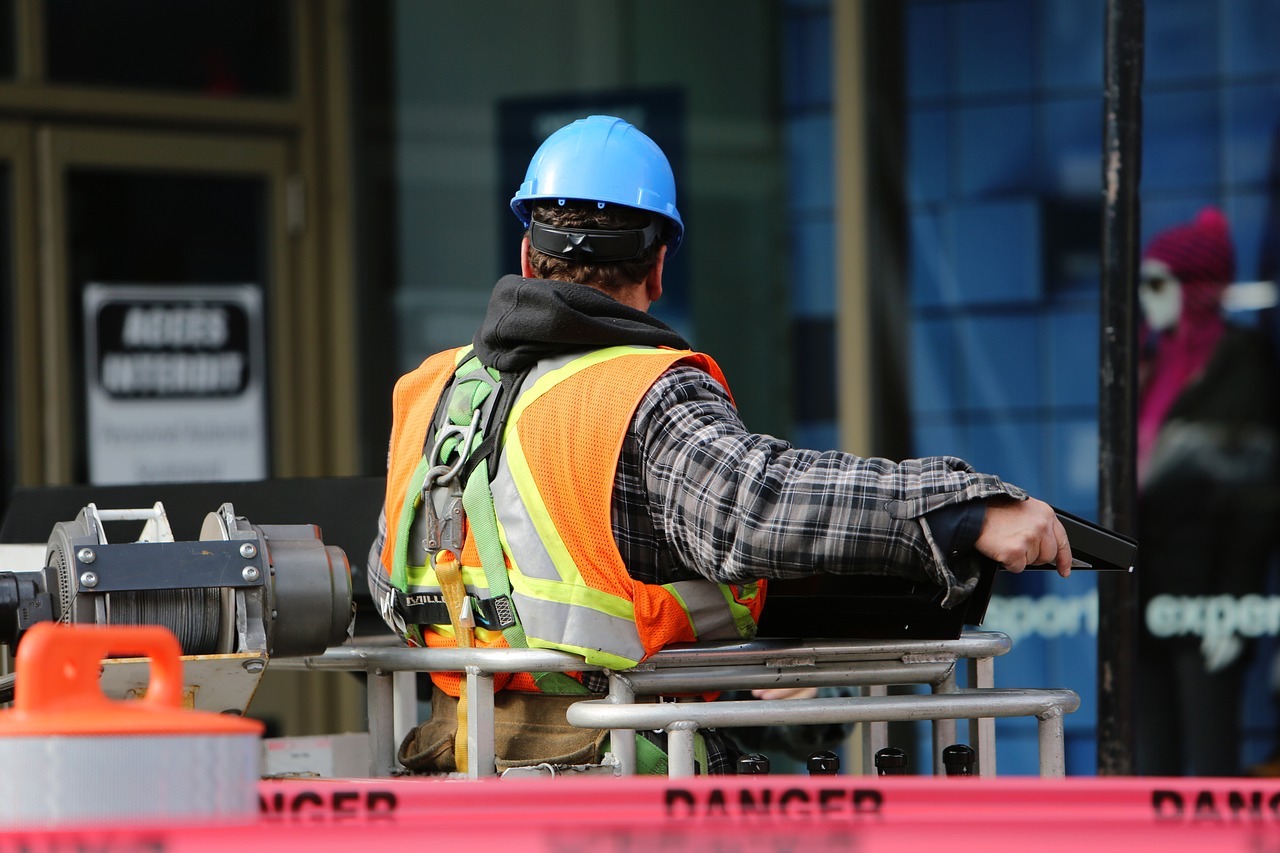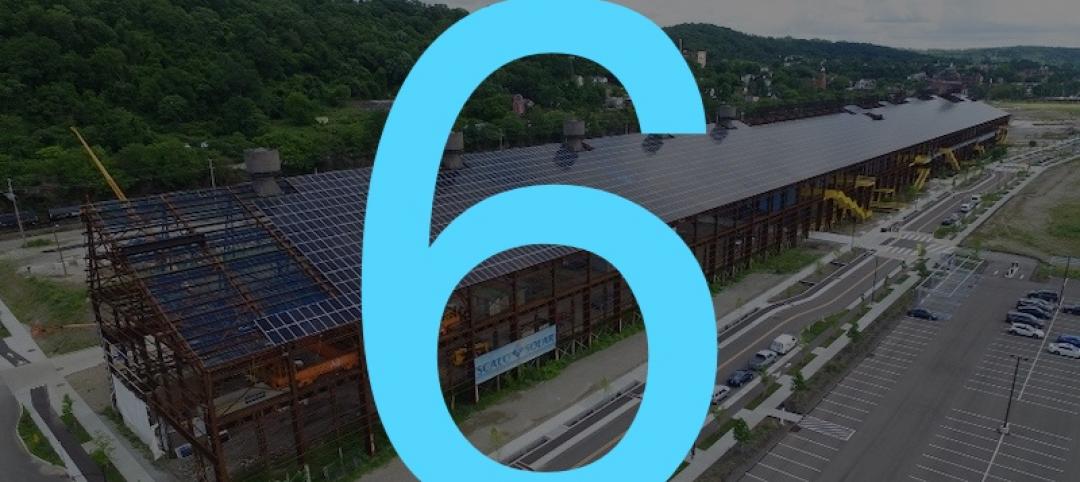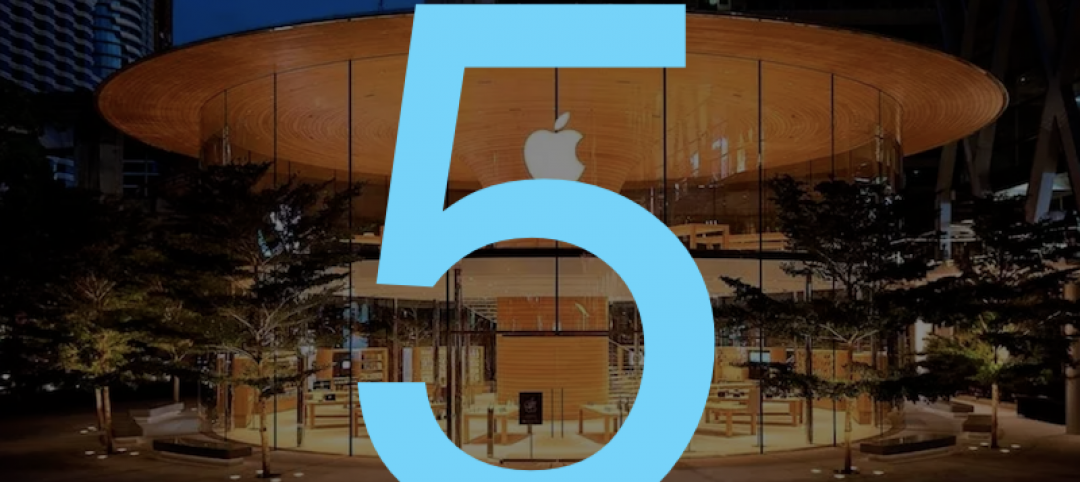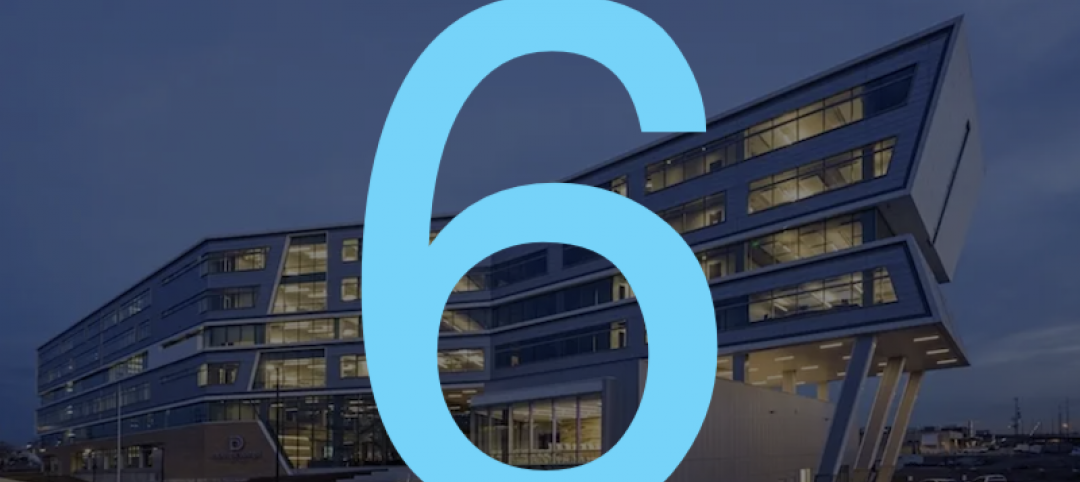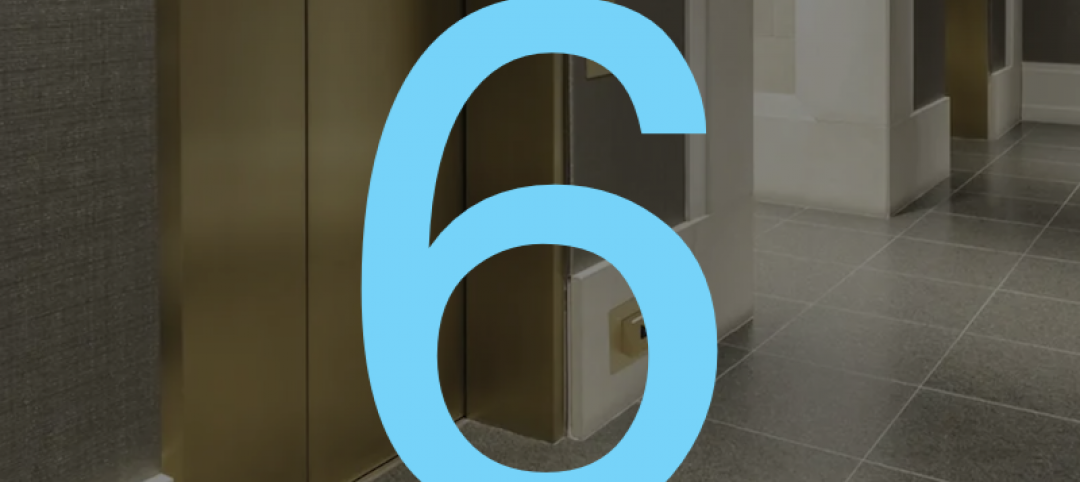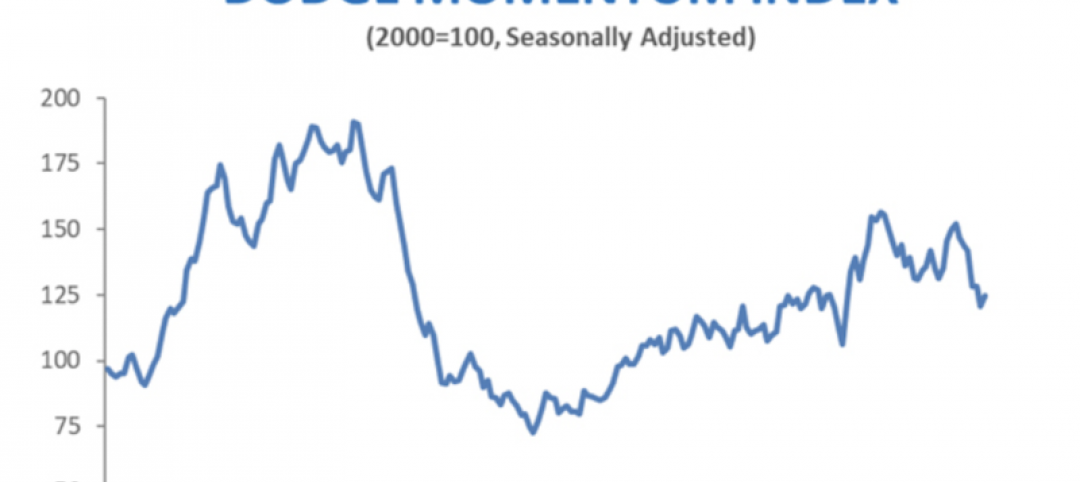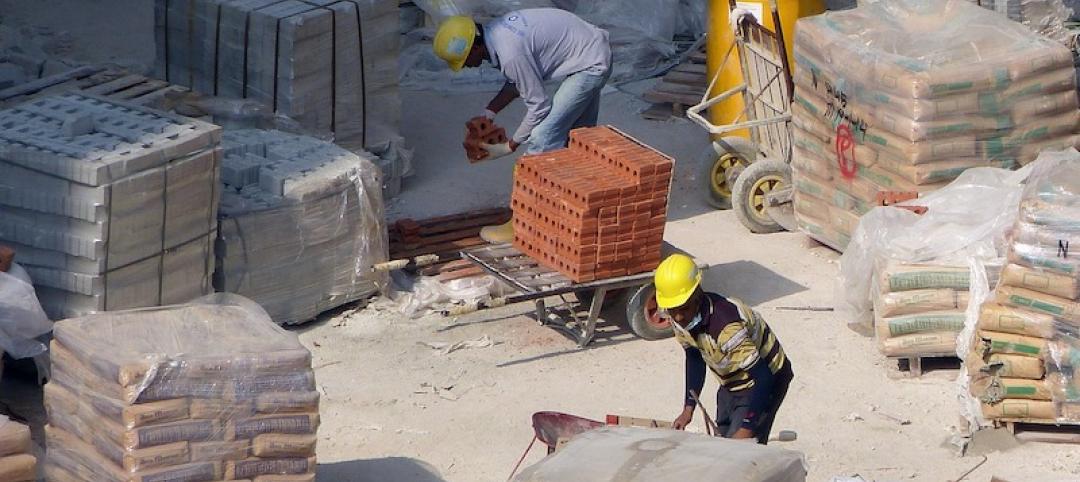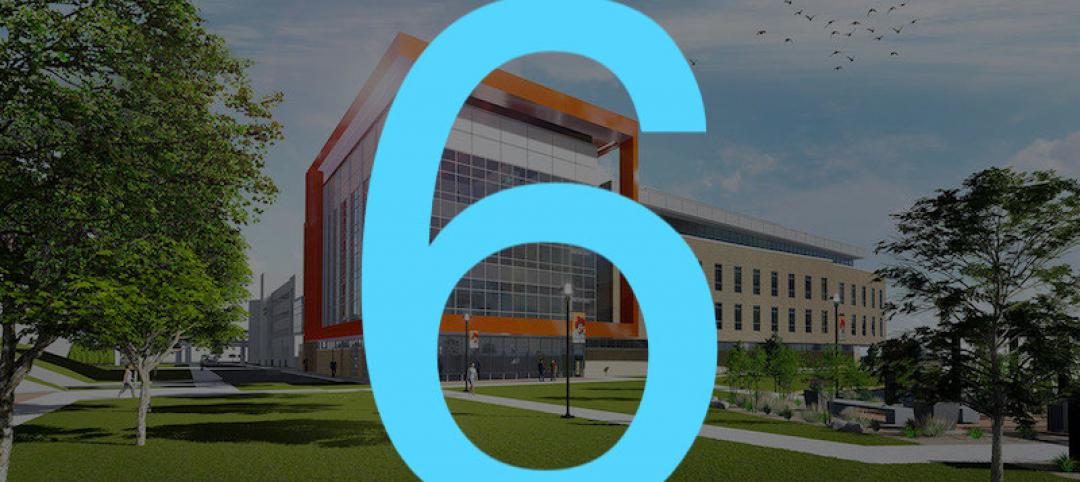In the first half of 2024, construction costs stabilized. And through the remainder of this year, total cost growth is projected to be modest, and matched by an overall increase in construction spending.
That prediction can be found in JLL’s 2024 Midyear Construction Update and Reforecast, released today. JLL bases its market analyses on insights gleaned from its global team of more than 550 research professionals who track economic and property trends and forecast future conditions in over 60 countries.
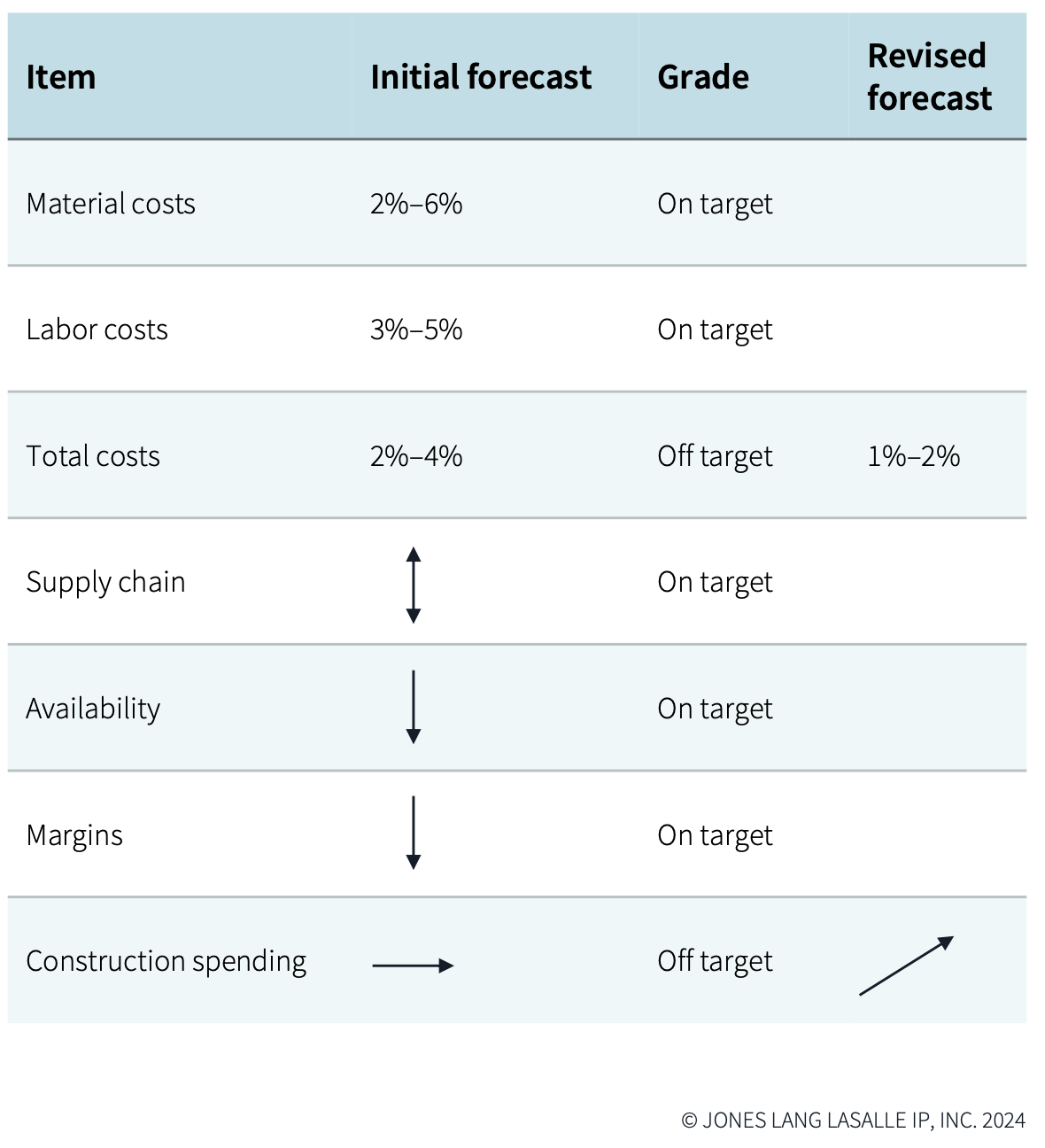
The Update acknowledges that the industry has been adjusting to new patterns of demand, as not all sectors are performing equally well. Interest in projects in general has increased, lending regulations are not tightening, and spending is up more than originally anticipated.
Still, the trajectory of interest rates “continues to elude forecasters,” observes JLL, “making ‘higher for longer’ the correct operating paradigm.” Yet despite financial constraints, JLL expects cost growth and development to continue. Stakeholders need to account for maturing debt, lease expirations, and emerging global advantages as they navigate the realities of sustained higher interest rates and varied local outcomes.
One area of opportunity for AEC firms, under these circumstances, is resilient and sustainable design and construction, says JLL.
Spending is outpacing employment availability
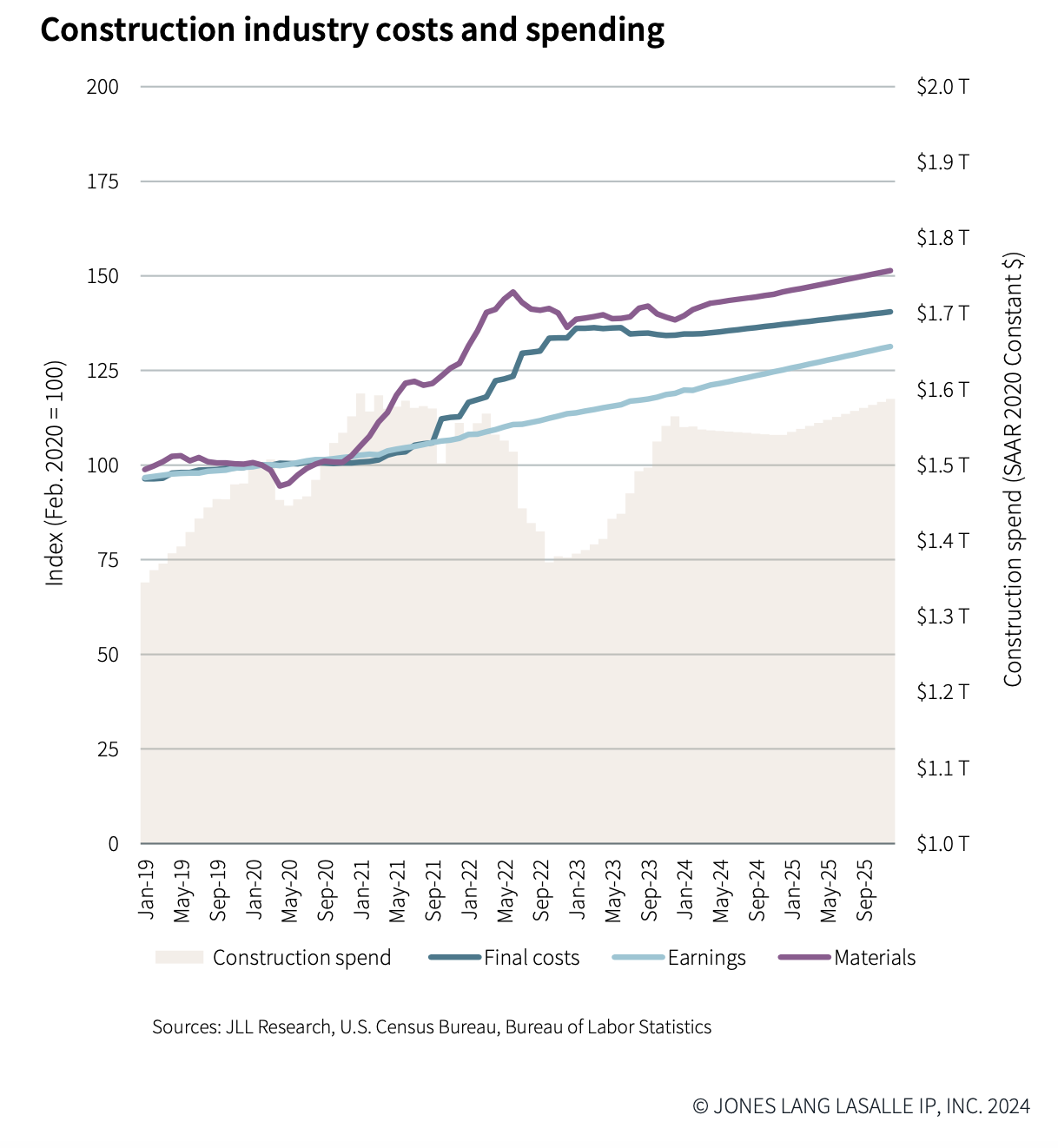
With these positive outlooks, construction employment has risen, along with compensation. Labor costs driven by limited availability continue to provide a growth floor for broader industry costs. JLL states that its predictions of wage growth at moderately higher than historical rates remain unchanged.
This is because construction spending has been outpacing employment. “Relative strain in production value required per employee is returning to pre-pandemic points [but] with a very different workforce, and remains heavily concentrated in select metros,” JLL states.
While overall growth has been restrained to average below expectations, volatility persists, notably on the cost of materials. Demand for finished goods remains high, especially for MEP products as more sectors electrify and upgrade their operating systems.
Staples of demand are changing and, with them, expectations for price moderation and normal market behavior. For example, bid prices for staple materials such as metals and concrete are at their lowest average monthly movement since 2020. JLL observes that price stability reflects efforts to develop backlogs and secure work and margins. But with global events being so unpredictable, this current period of price stability, says JLL, is transient “and likely short-lived.”
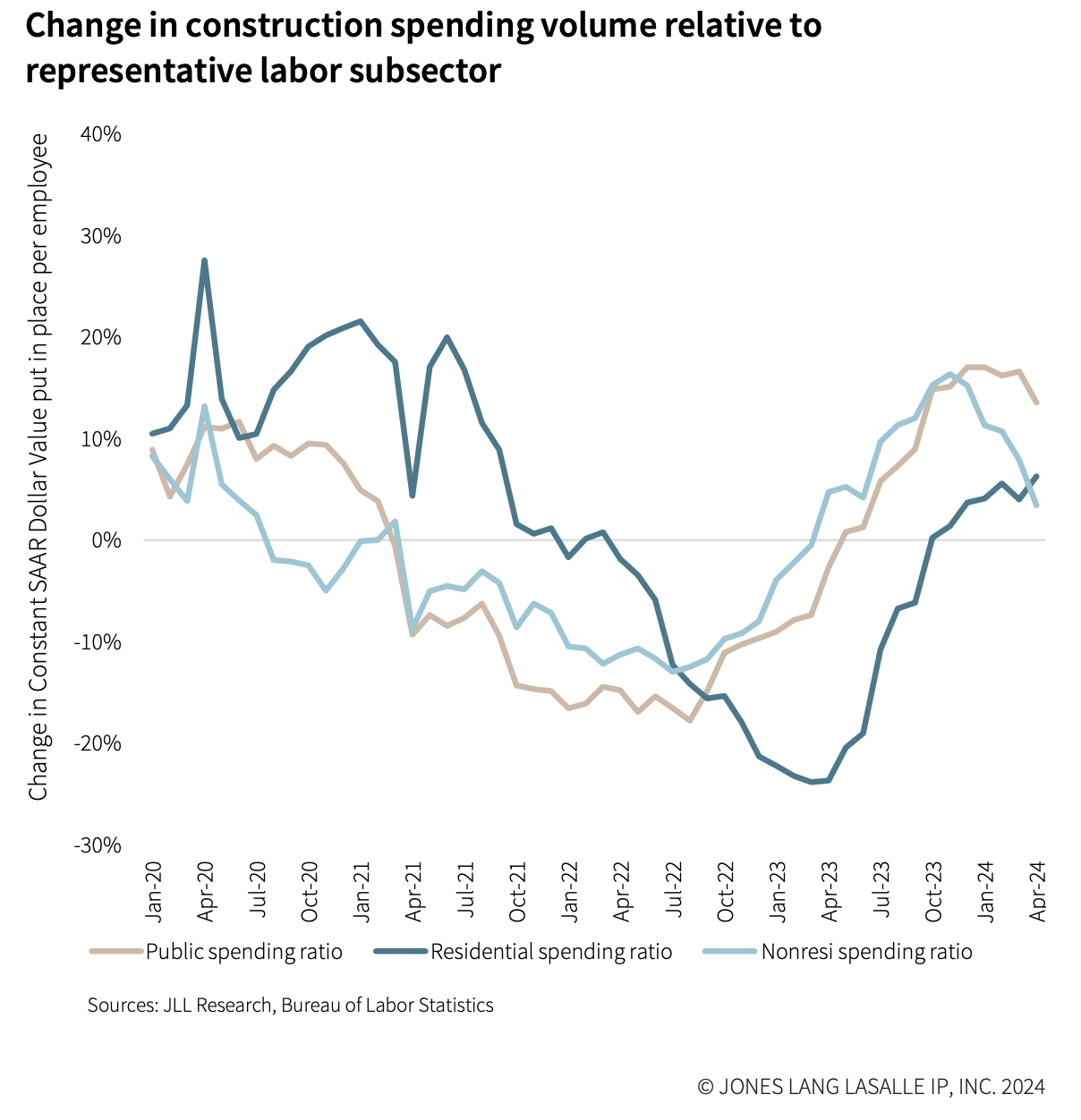
Big question: continued infrastructure investment
JLL believes that market participants, namely developers, suppliers, and AEC firms, are going to hold their current growth pace over the short term. Its Update advises stakeholders to engage the nuances of local markets and design demands “as early as possible” to determine market direction and to navigate disruptions.
So far, firms have been able to compress their margins, mainly because material costs have trended lower than expected, which in turn has allowed for higher-than-anticipated construction spending. But labor challenges continue unabated and are expected to exert pressure on costs into 2025 and beyond.
Consequently, JLL has revised some of its forecasts for the remainder of 2024, most prominently that total costs would increase just 1-2% for the year, and that construction spending (which JLL previously thought would be flat) will increase.
JLL notes, too, that aggregate materials, currently on the low end of price increases, might experience more volatility. JLL also states that anticipating spending increases—and the price floor that such demand would set—will depend on continued public investment in infrastructure and other construction projects.
Related Stories
Market Data | Aug 17, 2020
5 must reads for the AEC industry today: August 17, 2020
5 strategies for creating safer hotel experiences and how to manage multifamily assets when residents no longer leave.
Market Data | Aug 14, 2020
6 must reads for the AEC industry today: August 14, 2020
The largest single sloped solar array in the country and renewing the healing role of public parks.
Market Data | Aug 13, 2020
5 must reads for the AEC industry today: August 13, 2020
Apple Central World opens in Bangkok and 7-Eleven to buy Speedway.
Market Data | Aug 12, 2020
6 must reads for the AEC industry today: August 12, 2020
UC Davis's new dining commons and the pandemic is revolutionizing healthcare benefits.
Market Data | Aug 11, 2020
6 must reads for the AEC industry today: August 11, 2020
Elevators can be a 100% touch-free experience and the construction industry adds 20,000 employees in July.
Market Data | Aug 10, 2020
Dodge Momentum Index increases in July
This month’s increase in the Dodge Momentum Index was the first in all of 2020.
Market Data | Aug 10, 2020
Construction industry adds 20,000 employees in July but nonresidential employment dips
Association warns skid will worsen without new relief.
Market Data | Aug 10, 2020
5 must reads for the AEC industry today: August 10, 2020
Private student housing owners reap the benefits as campus housing de-densifies and race for COVID vaccine boosts real estate in life sciences hubs.
Market Data | Aug 7, 2020
6 must reads for the AEC industry today: August 7, 2020
BD+C's 2020 Color Trends Report and HMC releases COVID-19 Campus Reboot Guide for Prek-12 schools.
Market Data | Aug 6, 2020
6 must reads for the AEC industry today: August 6, 2020
Oklahoma State's new North Academic Building and can smart buildings outsmart coronavirus?


